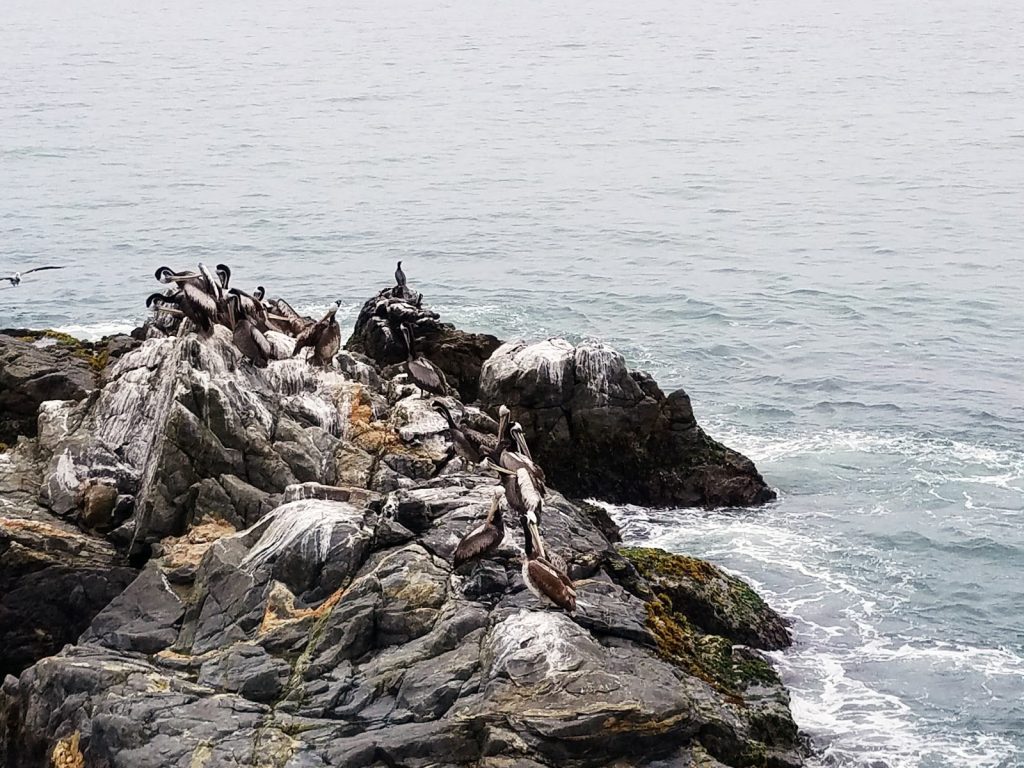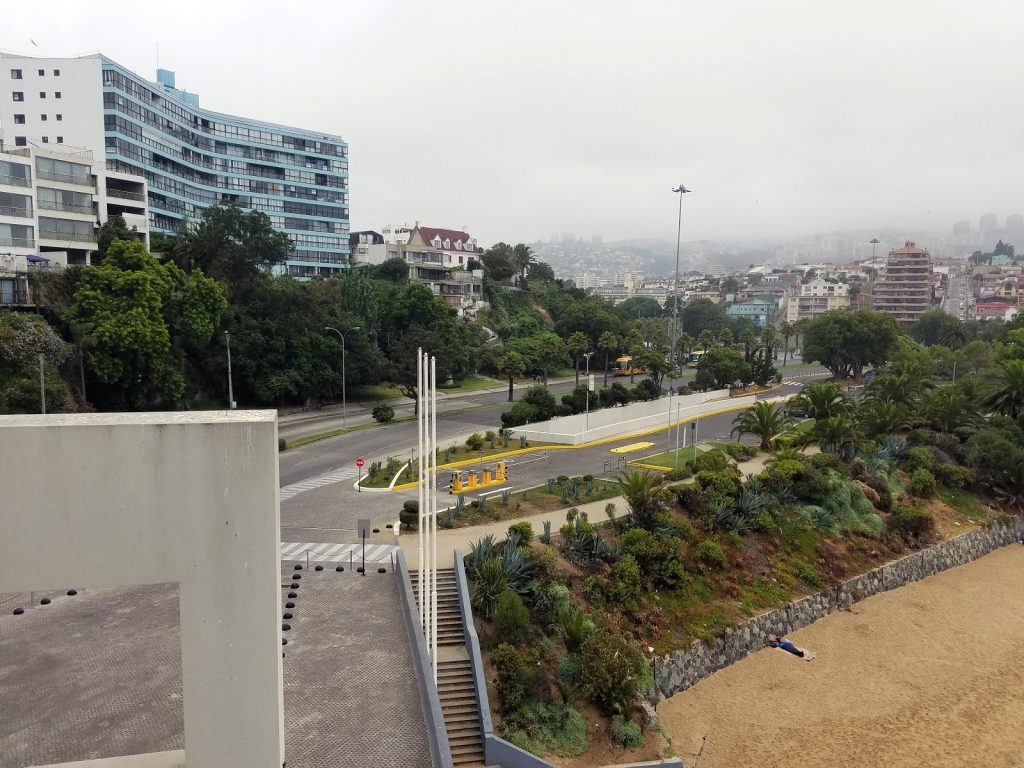While I was in Chile for the 2018 International Adam Smith Society conference, I went on two runs. I started both times from my hotel in Vina del Mar, but on the first, I went south, toward Valparaiso, and then on the second, I ran north, toward Zapallar. Both runs along the seaside were spectacular, with the characteristic black rocks rising sharply from the sea while pelicans, cormorants, and gulls entertained me.

But the similarities stopped there. To the north, the pathways took me to wealth and prosperity. My run north took me by glass-faced restaurants perched precariously by the seashore, colorful gardens filled with well-pruned flowers, and playgrounds and fitness devices for well-heeled visitors.
The route to the south passed by a well-used public bathing area and then descended into a sketchy stretch where the stench of rotting food, vehicle exhaust fumes, and unidentifiable, sundry matter came close to overwhelming. Dogs slept on concrete while small tents dotted the beach. Bridges were half collapsed into the sea with their underlying rebar poles exposed.
Two runs of the same distance and departing from the same point took me through wildly different worlds. Coming to the Sheraton hotel from the south, the hotel staff attempted to prevent my entry. Only when I showed my room key was I allowed to proceed. (I suppose a runner looks a bit like a homeless person!)
Like the north-south routes, Chile is filled with contrasts. It sports some of the most incredible architecture and wildlife. Roads rise from the sea to climb steep mountains in what is clearly a series of engineering feats. Those who drive the buses on these narrow roads are some of the most skilled navigators in the hemisphere. Yet the bus itself isn’t up to the climb; it overheats and chugs and huffs, and the driver must shut it down and re-start in order successfully to make the uphill trek.

On a trip to Chile some 10 years ago, a cab driver opined that the vast disparity between rich and poor would lead to political change. That prediction proved to be accurate.
Chileans with whom I spoke on my most recent trip mused that the country had moved too far to the left during the previous administration and that the time is ripe for a shift to the center right. The country did shift politically during the most recent election. For the most part cab drivers, wait staff, and students with whom I spoke seem to hold moderate political views with a sense that they should be fairly free to, as Deirdre McCloskey put it in her remarks about economic growth that opened the conference, “make a go of it” while at the same time looking forward to a more humane future.
Notwithstanding the challenges created by deep disparities in income, Chile does seem to be a place where ordinary people can “make a go of it,” selling hats, water, or jewelry to visitors or using containers to transport goods across the country from the busy port.
I adore the country—its rugged physicality, rocky outcrops, and desert mountains and its people. I hope they succeed.
